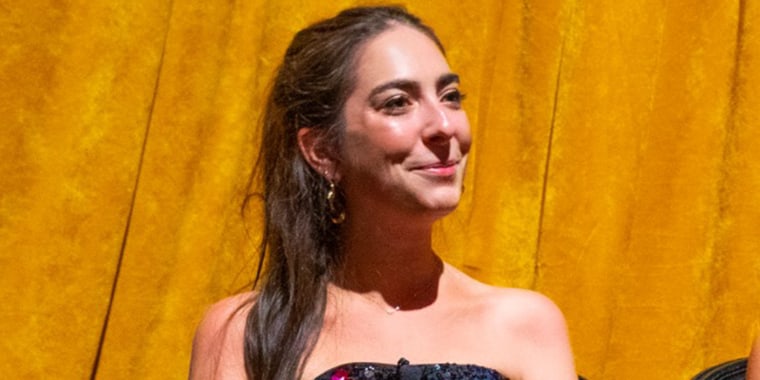At night when the leg cramps struck, Leah Stavenhagen, then 26, jolted awake. While the cramps were annoying and made her feel old, she didn’t think much of them. Then she started stumbling and falling. So Stavenhagen started yoga to improve her balance, but she struggled to keep up. This seemed strange because she had always been athletic and was a synchronized swimmer. A year after her symptoms started she learned the reasons behind them: Stavenhagen had amyotrophic lateral sclerosis, what's more commonly known as ALS.
“Something was just off and (I thought) it was because maybe I’ve been too focused on schoolwork and not focused on working out,” the 29-year-old from Westchester, New York, told TODAY. “I was getting older. My body was changing. It was really easy to think that it had to do with something else. ALS or serious disease, they were just not at all on my radar.”
All she knew about ALS was what she learned from “The Theory of Everything” about Stephen Hawking and she didn’t pay close attention.
“It didn’t register what the name of the disease was,” she said. “You hear about such things (happening to) people but of course you never think it’s going to be you. I felt like I had a very normal, easy life.”
From diagnosis to advocacy
As Stavenhagen grappled with her diagnosis, she was also relieved to learn the reason behind her symptoms.
“As soon as I heard about it — because of the muscle twitches, the falling down, feeling a bit slower — I was like, ‘You know I’m not crazy. It’s not really my fault. A disease is actually doing that.’ At the time it was comforting because it was actually an explanation,” she said. “I had never had to deal with such a tragedy before. It really catches you off guard.”
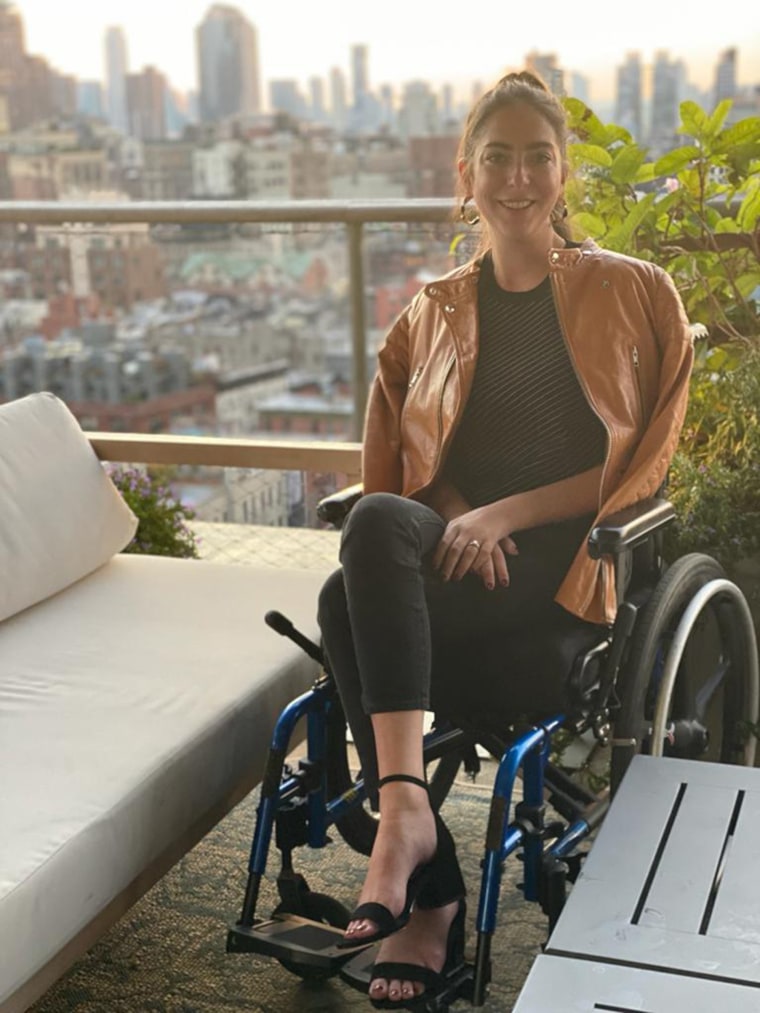
She faced what it means to have ALS. The progressive, neurodegenerative disease has no cure. There are some treatments for it, but it is considered life limiting. As the disease continues, motor neurons die and the brain can no longer control muscle movements, meaning people gradually lose their ability to move, eat, speak and breathe, according to the ALS Association. From 2019 to 2020, her first year of her diagnosis, her health deteriorated and she lost “a ton of independence, a ton of strength in my body.”
“Your whole future just evaporated,” she said. “It is a relatively rare disease. You go online and you look for reports or articles about other young people going through this and there just really wasn’t much out there.”
At the time, Stavenhagen was living and working in France. Her father works as a research scientist and he found several neurologists in the United States working on ALS treatments. In June 2020 she was able to start a treatment as part of an extended access program and she’s been dividing her time between the United States and France. Every four weeks, she receives an infusion.
“You really can’t say if there’s a positive impact because of the treatment or if it’s just because of normal disease progress that has plateaued,” she said. “It seems like a strong hypothesis to say that this has helped significantly with disease progression.”
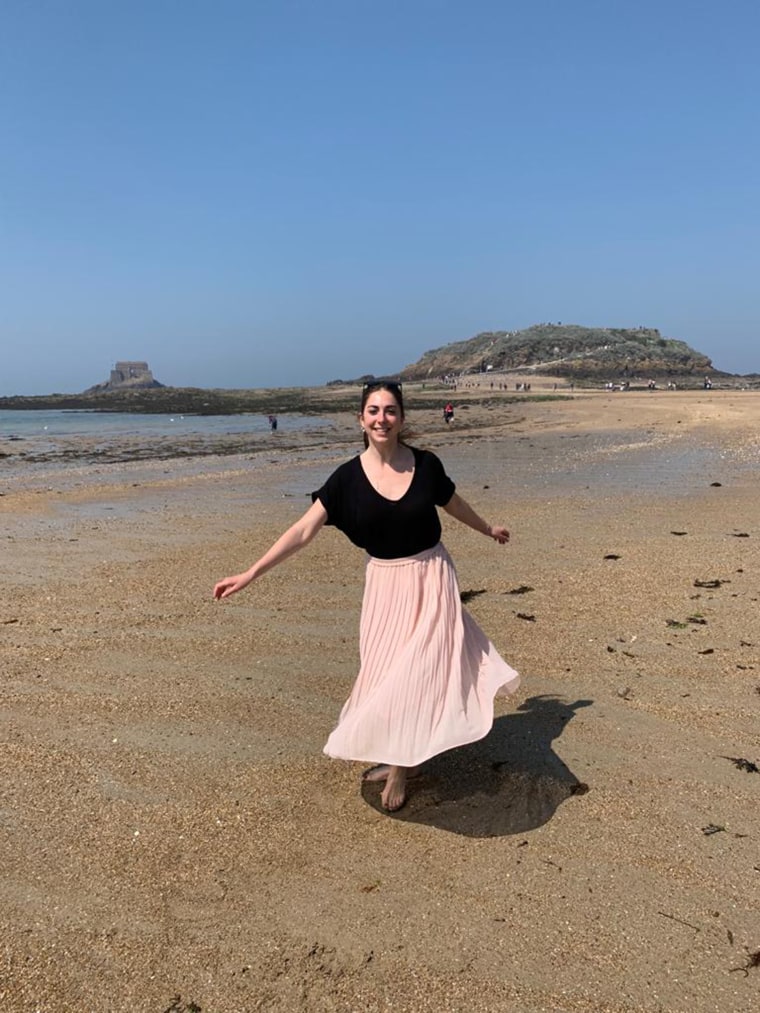
Since starting she’s seen “several small changes” that seem to make a difference.
“That gives you a lot of hope that there are potentially things out there that can be helpful,” she said.
She started another treatment in January but is unsure if that’s improving her health or not. Still, Stavenhagen has had to grapple with dying young.
“I really have to think about the short-term future. I can’t be planning for years in advance. It feels very difficult to think about family events or things that might happen in the future,” she said. “It definitely impacted how I think about basically everything.”
Stavenhagen struggled to find people to talk about living with ALS in their 20s. Many people with it are older or male, meaning they often face different issues than what she experiences. They might have had to tell adult or older children or retire, for example. But Stavenhagen was at the start of her career and wasn’t married.
“The big questions for me were quite different,” she said.
She started working with I am ALS, an advocacy organization, to connect with people like herself and founded Her ALS Story for young women diagnosed with the disease.
“I said that I would love to try a campaign to gather stories of other young women. I knew there were others,” she said. “There are some aspects of the disease that are very unique to women of our age.”
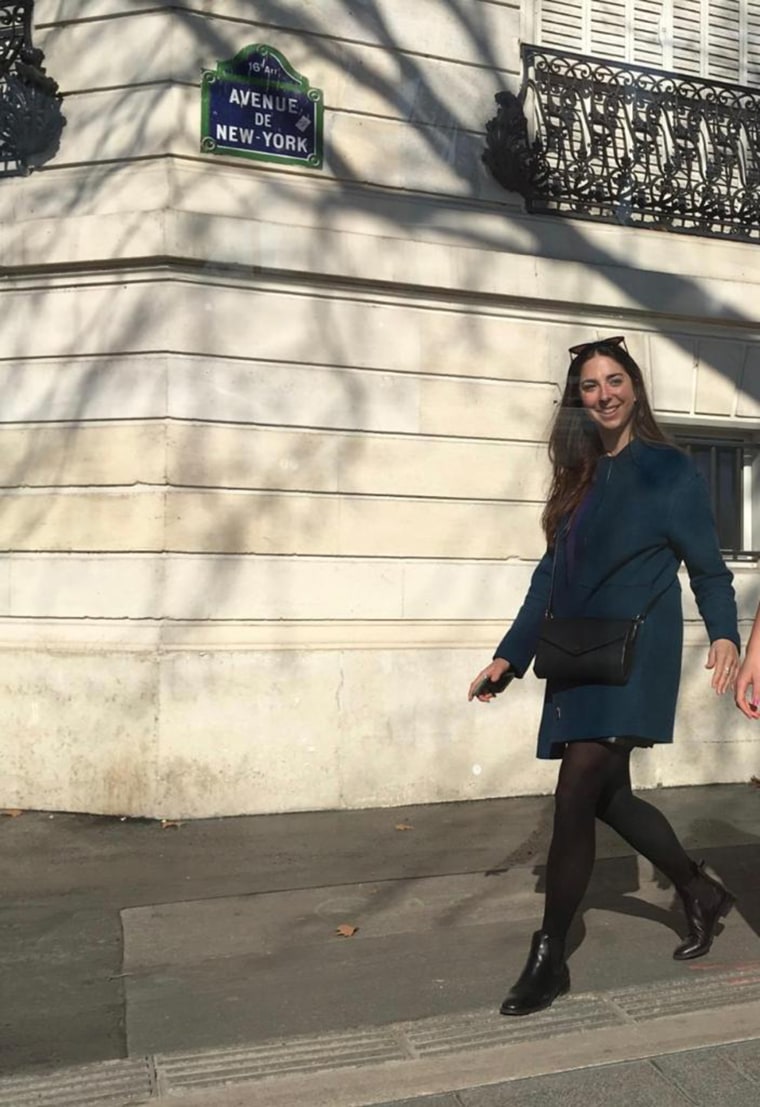
“We have a network to talk amongst ourselves about things that can be difficult, like how do you approach relationships with an ALS diagnosis,” she said. “We get messages like, ‘Hi can I join the group? I’ve actually had this disease like seven years ago and I wish something like that was out there earlier.’”
The responses like this have been "heartwarming and powerful," she said.
Life with ALS
Last year, Stavenhagen got married. Sometimes when she and her husband are out people will comment how sweet they are together or mention how hard it must be to need a wheelchair. Dealing with ableism has been another challenging aspect of life with ALS. She hopes people think before making assumptions.
“I dislike people who say, ‘Oh you’re in a wheelchair. I couldn’t do it. It would be so hard.’ Because if somebody looks at you with that opinion it’s like why are you assuming your life is better?” she said. “Do some research because it’s important, in general, to have better awareness of different disabilities.”
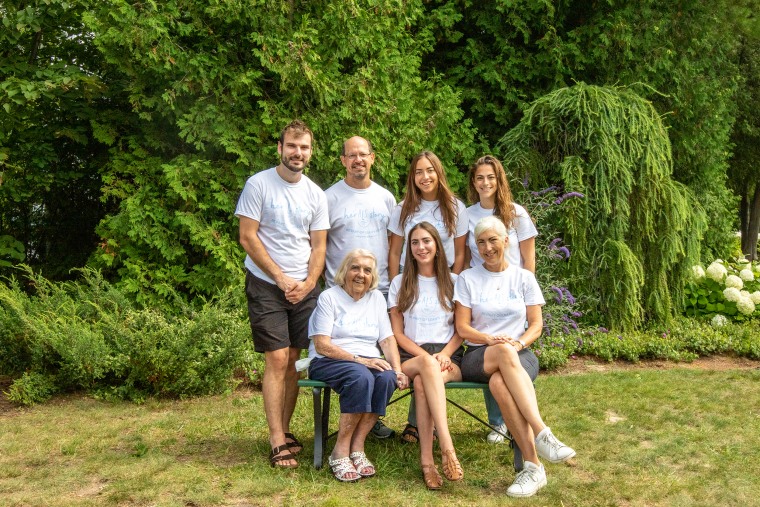
She hopes to increase awareness of ALS and that more funding is dedicated to research into treatments and a cure. Last week Congress passed the Act for ALS bill, which aims to do just that. She wrote to her senators and representatives urging them to support it.
“Just because you’re faced with an obstacle doesn’t mean that you can’t go out you can’t go out and make a difference, having a super fulfilling life,” she said.
CORRECTION (Dec. 22, 2021, 3:16 p.m.): An earlier version of the article said that Stavenhagen was on a treatment that was part of a clinical trial. It is not part of a clinical trial.
Related:
